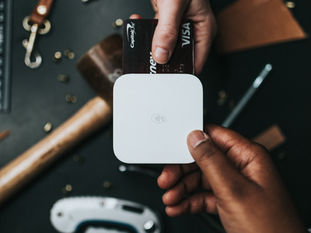
Navigating Document Authentication: What You Need to Know
Mar 28
3 min read
0
1
0
When it comes to verifying documents, notary stamps and document authentication often come into play—but they serve different purposes. Whether you need a document notarized for use in Canada or authenticated for international use, understanding these processes can help you navigate the legal requirements smoothly.
What is a Notary Stamp?
A notary stamp is a certification by a notary public that verifies the authenticity of a signature on a document. In British Columbia, all lawyers are also notaries, meaning they can both provide legal advice and notarize documents.
How Does a Notary Stamp Work?
Purpose: Confirms the signer’s identity, willingness, and understanding of the document.
When It’s Used: Typically for documents intended for use within Canada.
Who Can Provide It: In B.C., every lawyer is also a notary public, ensuring document authenticity and helping to prevent fraud.
How Does Canada Handle Document Authentication?
Unlike many other countries, Canada does not use the apostille system. Instead, we follow a two-step process called authentication and legalization to validate documents for international use.
The Authentication and Legalization Process
Authentication: A government authority, such as Global Affairs Canada or a provincial office, verifies that the signature and seal on a document are genuine.
Legalization: The document is then sent to the relevant consulate or embassy of the destination country, where it is further verified for use abroad.
Each country has its own rules regarding authentication and legalization, so it’s always best to check with the consulate or embassy of the destination country to confirm their requirements.
Who Handles Authentication and Legalization in Canada?
Authentication:
Global Affairs Canada authenticates documents for international use.
Provincial/Territorial Offices may handle authentication locally, offering a more convenient option in some cases.
Legalization:
Foreign Consulates or Embassies complete the process by confirming the authentication is valid for their country’s legal system.
Which Documents Require Authentication and Legalization?
If you’re sending documents abroad, they may need to go through this process. Common examples include:
Personal Documents:
Birth, marriage, and death certificates
Divorce decrees
Adoption papers
Educational Documents:
Diplomas, degrees, and transcripts
Enrollment certificates
Business Documents:
Articles of incorporation
Certificates of good standing
Commercial invoices
Business powers of attorney
Legal Documents:
Powers of attorney
Affidavits
Court orders
Notarized documents
Other Documents:
Police clearance certificates
Medical records
Travel consent letters for minors
Since document requirements vary by country, always verify with the destination country’s consulate or embassy to avoid delays.
Are Notarized Certified Copies Accepted?
A notarized certified copy is a document that a lawyer or notary public has reviewed and confirmed as a true copy of the original. This can be useful for legal, business, and administrative purposes.
When Are Notarized Certified Copies Accepted?
In Canada: Generally accepted by institutions, courts, and government offices.
Internationally: May require authentication and legalization before being recognized abroad.
Things to Keep in Mind:
Check Requirements: Some institutions have specific guidelines for notarized documents, so it’s best to confirm in advance.
Original Document Needed: The notary must review the original document before certifying a copy.
Notary’s Role: They verify the accuracy of the copy but do not confirm the validity of the document’s contents.
Final Thoughts
Understanding the differences between notarization, authentication, and legalization can help ensure your documents meet the necessary legal requirements, whether for local or international use. If you need assistance with document authentication or notarization, consulting a legal professional can make the process much smoother.
Need help authenticating or notarizing a document? Contact our team today! www.strain.ca






